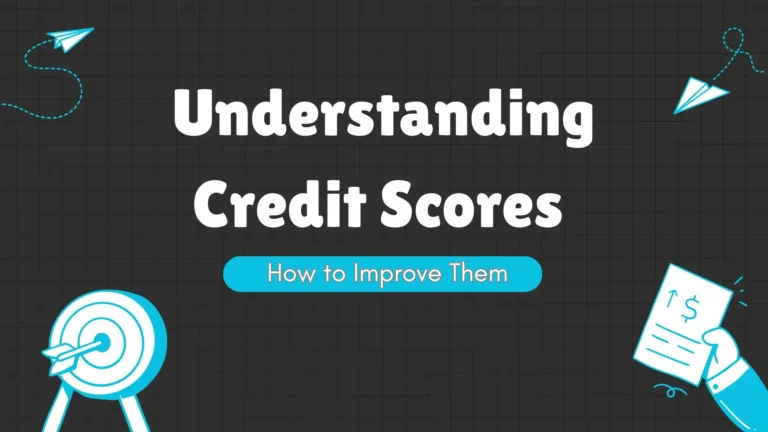In today’s world, your credit score acts as your financial passport. Whether you’re applying for a mortgage, a car loan, a credit card, or even trying to rent an apartment, your credit score can make or break the deal.
Yet, despite its importance, there are many myths and lesser-known facts surrounding how credit scores work. At String Reveals, our goal is to decode financial systems for everyday people. In this post, we’ll dive deep into little-known facts about credit scores—the kind of insights that most people only learn the hard way.
Table of Contents
🔢 What Is a Credit Score, Really?
Before diving into the lesser-known facts, let’s quickly define what a credit score is.
A credit score is a three-digit number, typically ranging from 300 to 850, that reflects your creditworthiness. In simpler terms, it shows how reliable you are at repaying borrowed money.
The most widely used scores are:
- FICO Score (used by 90% of top lenders)
- VantageScore (a competitor developed by the major credit bureaus: Experian, Equifax, and TransUnion)
Scores are calculated using several factors:
- Payment history (35%)
- Credit utilization (30%)
- Length of credit history (15%)
- Credit mix (10%)
- New credit inquiries (10%)
Now that we’ve got the basics down, let’s explore the less obvious truths that can help you manage your credit better.
🕵️♂️ 1. Checking Your Own Credit Score Won’t Hurt It
Many people believe that checking their credit score can reduce it. This is a myth.
There are two types of credit inquiries:
- Soft Inquiry: Happens when you check your own score or a company checks it for a pre-approved offer. This does not affect your score.
- Hard Inquiry: Happens when a lender checks your credit before approving a loan or credit card. This may slightly lower your score by a few points temporarily.
Pro Tip: Regularly checking your credit score helps you track changes, detect errors, and prevent fraud—without any downside.
💳 2. Keeping Old Credit Cards Open Boosts Your Score
It might seem responsible to close unused credit cards, but doing so can actually lower your credit score. Here’s why:
- Credit utilization is calculated based on your total available credit. Closing an account reduces that available credit, increasing your utilization ratio.
- Length of credit history also matters. Older accounts contribute positively.
Example: If you have two cards—one opened in 2015 and one in 2022—closing the 2015 card will shorten your credit history.
Tip: Keep older, no-fee credit cards open and use them occasionally to maintain activity.
🧾 3. Your Income Has Nothing to Do with Your Score
Surprisingly, your salary, job title, or employer has no direct impact on your credit score.
Credit bureaus don’t factor in your income when calculating scores. Instead, they look at how well you manage your debt, not how much you earn. This means:
- A high-income individual with poor credit habits can have a low score.
- A low-income individual who pays bills on time and keeps debt low can have a high score.
Your income does matter to lenders when they assess your ability to repay a loan, but it doesn’t affect the number you see in your credit score report.
📊 4. Credit Utilization Ratio: The Hidden Score Killer
One of the most misunderstood elements is the credit utilization ratio—the percentage of your available credit that you’re currently using.
Formula:
Credit Utilization = (Total Credit Card Balances / Total Credit Limits) × 100
Example:
If you have a total limit of ₹1,00,000 and use ₹40,000, your utilization is 40%.
Best Practice:
- Keep utilization below 30% to maintain a healthy score.
- For optimal scores, aim for below 10%.
- Even if you pay your full balance every month, your score might dip if your utilization is high on the statement date.
⌛ 5. Credit Scores Change Frequently
Your score isn’t static—it can change monthly or even more frequently depending on your credit behavior and when lenders report to credit bureaus.
Some key triggers:
- Payments posted or missed
- Credit card balances updated
- New accounts opened or closed
- Hard inquiries added
Tip: Use tools like Experian Boost or Credit Karma to monitor changes and catch unexpected drops.
🏠 6. Rent and Utility Payments Can Help (Sometimes)
Traditionally, credit reports don’t include rent, utility, or phone bill payments unless they’re unpaid and sent to collections. However:
- Some services like Experian Boost, RentReporters, and LevelCredit can add these payments to your report.
- Consistent on-time payments can raise your score, especially if your credit history is thin.
Note: This won’t work with every scoring model, but it can still give you a helpful boost.
🧠 7. Multiple Credit Scores Exist for the Same Person
You don’t have just one credit score—you have dozens. Different scoring models and credit bureaus use slightly different algorithms and data.
Examples:
- FICO Score 8 is the most widely used
- FICO Score 9 includes rent payments
- Auto lenders may use FICO Auto Score
- VantageScore has its own logic
Key takeaway: Your score can vary depending on where it’s pulled from and what it’s being used for.
🚫 8. Not Using Credit Can Hurt Your Score
Avoiding credit entirely may seem like a smart move—but it can actually hurt you in the long run.
If you don’t use credit at all:
- Your credit history remains thin
- Lenders have no data to judge your risk
- Your score might not exist at all
Tip: Even if you prefer cash or debit, consider using a credit card for small purchases and paying it off monthly. It helps you build and maintain credit without going into debt.
🧨 9. Medical Debt Has Less Impact (as of 2023)
Thanks to changes made by the three major credit bureaus (Experian, Equifax, and TransUnion):
- Paid medical debt is no longer included in credit reports.
- Unpaid medical debt under $500 is now excluded.
- Larger unpaid debts won’t appear until they’re at least one year old, giving people more time to resolve them.
This is a huge relief for millions who faced score drops due to medical bills.
📬 10. Errors Are More Common Than You Think
According to a study by the FTC, 1 in 5 people have an error on at least one of their credit reports. These mistakes can significantly lower your score and cost you money.
Common errors:
- Incorrect personal information
- Duplicate accounts
- Wrong account balances
- Fraudulent accounts
Tip: Check your reports at least once a year through AnnualCreditReport.com and dispute any errors immediately.
🎯 Final Thoughts: Credit Knowledge Is Power
A good credit score can unlock better interest rates, lower insurance premiums, easier loan approvals, and even better job opportunities. But most people aren’t taught how it works or how to manage it wisely.
By understanding the lesser-known aspects of credit scoring, you can:
- Make smarter financial choices
- Avoid common traps
- Build a stronger financial future
💡 At StringReveals, we believe in empowering you with knowledge. Whether you’re building your credit from scratch or looking to improve it, these insights can help you take control.
✅ Was this helpful?
Share this article and explore more personal finance tips on StringReveals.com. Have questions about credit, loans, or saving money? Drop them in the comments or reach out—we’re here to help.

